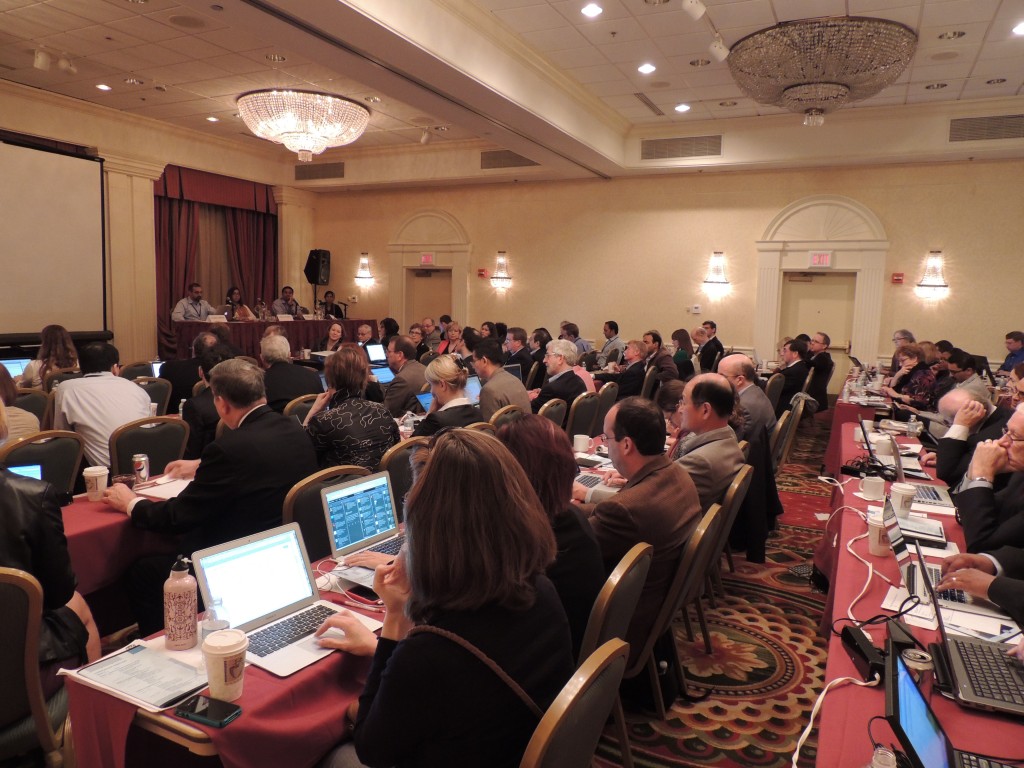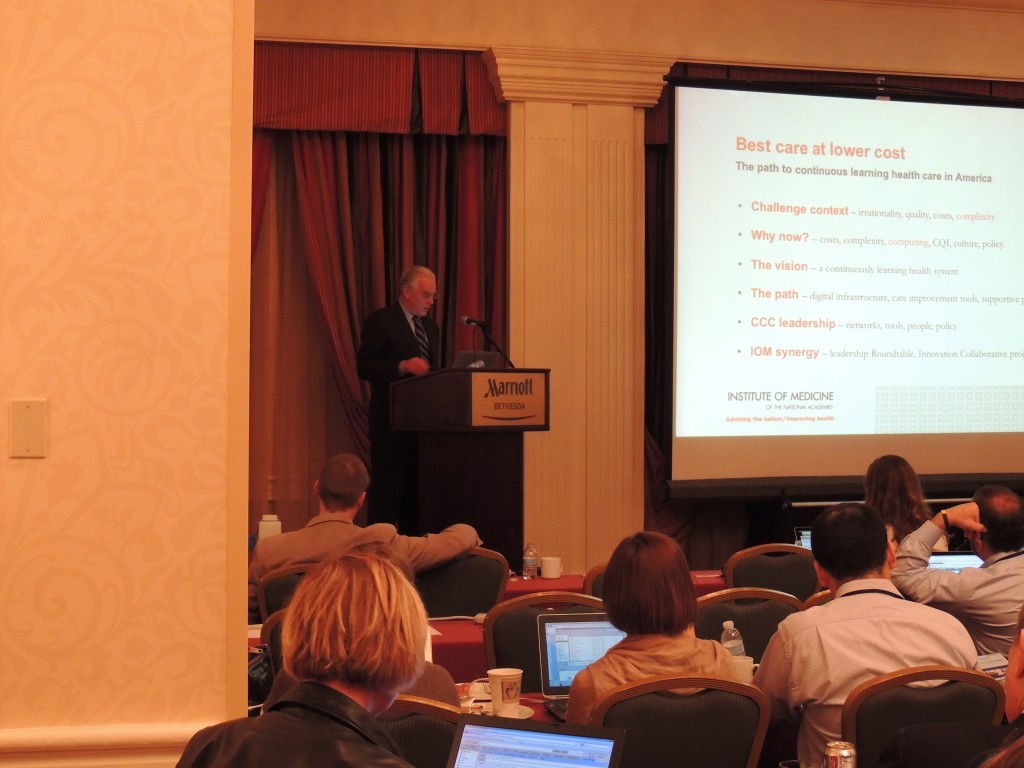The following is a special contribution to this blog from the Gregory Hager (Johns Hopkins University) and Elizabeth Mynatt (Georgia Tech), co-chairs of the Computing Community Consortium’s visioning workshop on health information technology – Computing and Healthcare: New Opportunities and Directions– held last month in Bethesda, Maryland. The committee summarizes some of the highlights of the workshop.
Computing and Healthcare have been receiving a great deal of attention in recent years. For example the Institute of Medicine (IOM) Roundtable on Value & Science-Driven Healthcare has issued a series of reports, the most recent of which, “Best Care at Lower Cost: The Path to Continuously Learning Healthcare in America.” provides a list of recommendations, many of which involve the integration and/or innovation of computing for healthcare research, delivery, and assessment.
 One of the challenges in Computing and Healthcare has been the segmentation of the communities involved – including biomedical informatics, computer science, clinical medicine and public health. As part of its continuing efforts to advance computing research, the Computing Community Consortium recently organized a workshop, entitled Computing and Healthcare: New Opportunities and Directions led by Beth Mynatt from Georgia Tech and Greg Hager from Johns Hopkins, and co-organized with Christopher Chute (Mayo Clinic), Deborah Estrin (Cornell Tech – NYC), Susan Graham (University of California, Berkeley), Eric Horvitz (Microsoft Research), Kevin Johnson (Vanderbilt University), and Kevin Patrick (University of California, San Diego). The goal of this workshop was to take the first steps toward bringing these communities together and releasing the potential of cross-community collaboration.
One of the challenges in Computing and Healthcare has been the segmentation of the communities involved – including biomedical informatics, computer science, clinical medicine and public health. As part of its continuing efforts to advance computing research, the Computing Community Consortium recently organized a workshop, entitled Computing and Healthcare: New Opportunities and Directions led by Beth Mynatt from Georgia Tech and Greg Hager from Johns Hopkins, and co-organized with Christopher Chute (Mayo Clinic), Deborah Estrin (Cornell Tech – NYC), Susan Graham (University of California, Berkeley), Eric Horvitz (Microsoft Research), Kevin Johnson (Vanderbilt University), and Kevin Patrick (University of California, San Diego). The goal of this workshop was to take the first steps toward bringing these communities together and releasing the potential of cross-community collaboration.
 Dr. J. Michael McGinnis, Senior Scholar at the IOM, kicked off the symposium by providing a compelling perspective on the current and future challenges of healthcare in the digital age. Officials from NSF and NIH provided their perspectives on the challenges and opportunities from their perspective, and affirmed their desire to work together to better unite all of the stakeholders in this area of national importance.
Dr. J. Michael McGinnis, Senior Scholar at the IOM, kicked off the symposium by providing a compelling perspective on the current and future challenges of healthcare in the digital age. Officials from NSF and NIH provided their perspectives on the challenges and opportunities from their perspective, and affirmed their desire to work together to better unite all of the stakeholders in this area of national importance.
The remainder of the symposium was organized around three themes: Exploiting Data in Abundance, Creating Systems for Collaborative Care, and Focusing on Patient Engagement. Cutting across these themes were a focus on systems-level thinking, and on the exploitation of population level thinking that moves beyond the confines of the traditional healthcare apparatus. Breakout groups discussed a variety of focused questions, all with the goal of answering four key questions:
1) What are un(der)recognized, poorly understood or unrealized opportunities for enhancing healthcare using advances in computing coupled with system-scale (re)engineering?
2) What are fundamental technical and non-technical barriers making progress on the above?
3) What are the basic and applied scientific questions that these barriers pose?
4) How can we measure progress, and what “instrumentation” of the healthcare system would be necessary to measure that progress?
Over 100 individuals from a remarkable variety of disciplines participated in the workshop. Each of the breakouts contributed to a workshop wiki, a valuable record of discussion that will be used to produce a “road map” of objectives aimed at producing a true community around Healthcare and Computing.









